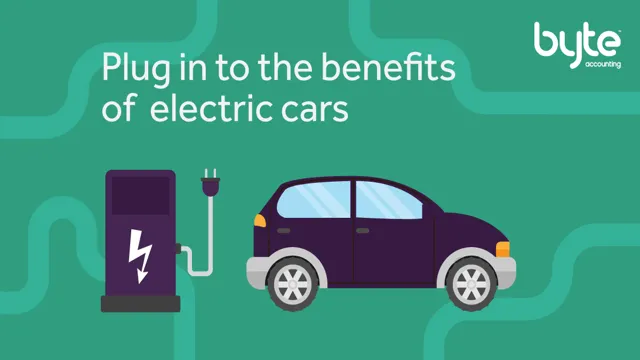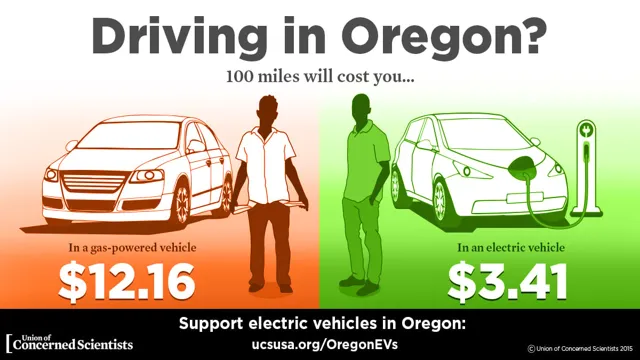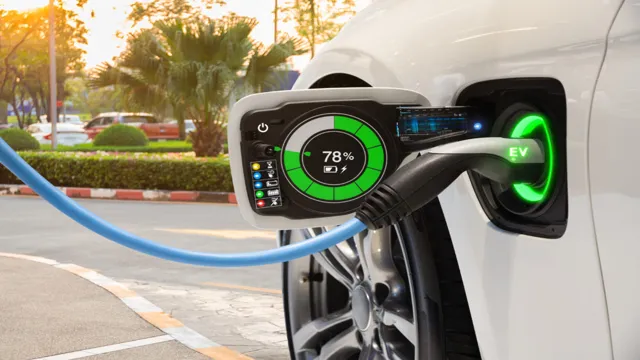Eco-Friendly and Cost-Effective: The Innumerable Benefits of Owning an Electric Car
Electric cars have been gradually taking over the automotive industry, and for good reasons. These eco-friendly vehicles have many benefits that make them an attractive option for people looking to upgrade their ride. In this blog, we’ll be delving into the top benefits of electric cars and why you should consider investing in one.
First and foremost, electric cars are incredibly eco-friendly. They produce zero direct emissions, meaning they don’t emit harmful pollutants like traditional gasoline-powered cars do. In addition, electric cars can be powered using renewable energy sources like wind or solar power, making them even more environmentally-friendly.
Another significant advantage of electric cars is that they are incredibly energy-efficient. Electric cars are significantly more efficient than gas-powered vehicles, with a significant portion of the energy from the battery being used to power the car’s movement. This translates to lower energy costs, less reliance on foreign oil, and fewer greenhouse gas emissions.
Furthermore, electric cars have significantly lower maintenance costs than traditional cars. They don’t require oil changes or regular tune-ups, and their brake pads typically last longer since they use regenerative braking. This means you’ll end up saving money in the long run while contributing positively to the environment.
In conclusion, electric cars have many benefits that make them a wise investment. They’re eco-friendly, energy-efficient, and have lower maintenance costs, making them an excellent option for anyone looking to upgrade their ride and contribute positively to the environment.
Reduced Carbon Emissions
Electric cars have a significant benefit when it comes to reducing carbon emissions. With traditional gas vehicles, emissions are released into the atmosphere during the combustion process. However, electric cars don’t have an exhaust pipe, which means they don’t emit pollutants like carbon monoxide, nitrogen oxides, and hydrocarbons.
This reduction in emissions also results in a cleaner environment and reduced air pollution. By driving electric cars, we can reduce the carbon footprint and support a healthier planet for future generations. Plus, the government is also incentivizing electric car purchases with tax credits and rebates, making these vehicles more accessible and affordable for everyone.
Overall, switching to an electric car is a smart and eco-friendly choice for a sustainable future.
Electric cars emit less carbon dioxide than gas vehicles
Electric cars emit significantly less carbon dioxide than gas vehicles, making them a more environmentally friendly option. While gas cars emit CO2 during combustion, electric cars don’t produce any tailpipe emissions. This means a significant decrease in greenhouse gas emissions since transportation is the largest source of CO2 emissions in the United States.
By using electricity from renewable sources, such as solar or wind power, electric cars can have a net-zero carbon footprint. The use of electric cars is the key to reducing carbon emissions and fighting climate change. Choosing an electric car means not only saving money on fuel, but also contributing to a cleaner and more sustainable future.

Lower Operating Costs
One of the biggest benefits of electric cars is their lower operating costs. Because electric motors are much more efficient at converting energy into motion, they require less energy to travel the same distance as a gas-powered car. This means that owners of electric cars can save significant amounts of money on fuel costs over the lifetime of their vehicle.
Additionally, electric cars typically require less maintenance than their gas-powered counterparts, since they have fewer moving parts and don’t require oil changes. This can also save owners money in the long run. While electric cars tend to have a higher upfront cost than gas-powered cars, the savings in operating costs can quickly offset this difference, making electric cars an increasingly popular choice for environmentally-conscious and financially-savvy drivers alike.
Electric cars have lower fuel and maintenance costs compared to gas vehicles
Electric cars are gaining popularity for various reasons, ranging from environmental concerns to lower operating costs. One of the most substantial financial benefits of an electric vehicle (EV) is the reduced cost of fuel and maintenance. Unlike gas vehicles, EVs run on electricity, which has a lower cost per mile.
The average cost per mile for an EV is less than $0.04, whereas a gas vehicle costs approximately $0.10 per mile.
Over time, this cost difference can translate into significant savings for the driver. Additionally, since EVs have fewer moving parts than gas vehicles, they require less maintenance and repair. Servicing an EV is typically less frequent and less complex, which can further reduce costs in the long term.
In summary, opting for an electric car can be a smart financial decision for individuals looking to save money on fuel and maintenance costs over time.
Improved Air Quality
An electric car benefit that is often overlooked is improved air quality. Traditional gasoline-powered cars emit harmful pollutants into the air that can contribute to respiratory diseases and climate change. However, electric cars produce zero emissions, making them a cleaner and more eco-friendly mode of transportation.
By driving electric, you are not only reducing your carbon footprint but also improving the air quality in your community. Imagine if everyone in your city drove an electric car, just how much cleaner the air would be. It’s a small step that can make a huge difference in the fight against climate change.
So, if you have the opportunity to switch to an electric car, not only will you be doing your part for the environment, but you’ll also be experiencing the many benefits of driving an electric car, including reduced noise pollution and lower fuel costs.
Electric cars do not emit toxic fumes like gas vehicles
Electric cars are revolutionizing the way we drive, and one of the biggest benefits is improved air quality. Unlike gas vehicles, electric cars do not emit toxic fumes that contribute to pollution and harm our health. This is especially important for those living in cities where air pollution can be a major concern.
The shift towards electric vehicles also has the potential to reduce the emissions caused by transportation, which is a major source of greenhouse gas emissions. By making the switch to electric cars, we can not only improve air quality but also take a step towards a more sustainable future. It’s clear that electric cars are not only better for the environment, but also for our health and well-being.
Less air pollution can benefit respiratory and cardiovascular health
Improved air quality can have a significant positive impact on our respiratory and cardiovascular health. Air pollution can be a major contributor to a variety of health issues, including asthma, lung cancer, heart disease, and strokes, among others. When the air we breathe is clean and free from harmful pollutants, it can help reduce the risk of these and other conditions.
Improved air quality can also benefit people who already have respiratory or cardiovascular issues. For example, individuals with asthma may experience fewer symptoms and require less medication, while those with heart disease may experience fewer hospitalizations. This is why it’s important for both individuals and governments to take steps to improve air quality, such as reducing emissions from cars and industry, promoting the use of clean energy, and planting more trees to filter out pollutants.
By taking these steps, we can help create a healthier, cleaner environment for ourselves and future generations.
Increased Energy Independence
One of the most significant benefits of owning an electric car is an increased level of energy independence. Traditionally, vehicles run on petroleum, which creates a dependence on foreign oil imports. However, electric cars rely on electricity, which can be produced domestically from a variety of sources, including renewables like solar and wind power.
This shift towards renewable energy sources for transportation reduces our reliance on foreign oil and the associated geopolitical complications that come with it. Additionally, electric cars can be charged at home, further increasing energy independence by decreasing the need for gas stations and their carbon-producing emissions. Overall, owning an electric car is a positive step towards increased energy independence and a more sustainable future.
Electric cars rely on domestically-produced electricity
Electric cars have the potential to play a critical role in increasing our energy independence. This is because electric cars rely on domestically-produced electricity. Our dependence on foreign oil has long been a concern, and any steps we can take to reduce this dependence can only be a good thing.
By enabling us to produce our electricity from renewable sources such as wind, solar, and hydroelectricity, we can reduce our reliance on foreign oil while also reducing our carbon footprint. Furthermore, electric cars can be charged at home, thereby reducing the need for foreign oil used in transportation and increasing our energy security. This is particularly crucial as we face the numerous challenges posed by an ever-changing global energy landscape.
In conclusion, it is evident that electric cars have the potential to play a critical role in increasing our energy independence and enhancing the security of our energy supply.
Less dependence on oil from foreign countries
Energy independence is becoming increasingly important as we aim to reduce our dependence on foreign oil. This means that the United States must strive to rely on its own sources of energy to meet its energy needs. One solution to increase energy independence is to focus on renewable energy sources such as wind, solar, and hydropower.
These sources of energy provide an ample supply of energy without relying on foreign countries. The government has encouraged investment in these renewable energy sources to reduce the use of non-renewable resources such as oil. With increased investment in renewable energy, we can reduce our dependence on foreign oil while also protecting the environment.
It is imperative that we focus on achieving energy independence through the development of renewable energy sources to ensure long-term sustainable energy solutions for our nation.
Government Incentives
One of the most significant benefits of owning an electric car is the potential government incentives and tax credits available to drivers. In many countries, governments are keen to encourage the adoption of eco-friendly vehicles, and they offer a range of incentives to support this goal. For example, in the United States, electric car drivers can claim a tax credit of up to $7,500, depending on the make and model of their vehicle.
In the UK, drivers of all-electric cars are exempt from vehicle excise duty, making it much cheaper to own and run an electric car. These kinds of incentives can help make electric cars more affordable, reduce carbon emissions and save drivers money in the long run. However, it is important to note that incentives will vary depending on where you live and the policies of your local government or state.
If you are considering purchasing an electric car, it is worth researching the incentives available to you, as they could save you a significant amount of money.
Tax incentives, rebates, and grants are available for electric car owners
As more people switch to electric cars, governments around the world are offering tax incentives, rebates, and grants to encourage their use. These incentives vary depending on the country and region, but they can often make electric cars more affordable for the average person. For example, in the United States, the federal government offers a tax credit of up to $7,500 for electric car owners.
Many states also offer additional incentives, such as rebates, free or reduced-price charging, and waived fees for car registration and inspections. Similar incentives are also available in other countries, such as Canada, the UK, and Australia. These incentives not only benefit individual car owners, but they also help reduce greenhouse gas emissions and promote cleaner air in our communities.
So if you’re considering buying an electric car, be sure to research the incentives available in your area and take advantage of them to save money and help the environment at the same time!
Conclusion
The benefits of electric cars are shocking, in the best way possible! Not only do they help reduce our carbon footprint and combat climate change, but they also save us money on fuel and maintenance costs. Plus, they’re so quiet you can hear a penny drop (or maybe just the hum of the electric motor). It’s time to charge up our awareness of electric cars and hit the road to a brighter, more sustainable future!”
FAQs
What are the environmental benefits of owning an electric car?
Electric cars produce significantly lower emissions than gasoline-powered cars, reducing carbon footprint and air pollution.
How long does it take to charge an electric car?
Charging times vary based on the type of charger used, but it can take anywhere from 30 minutes to several hours to fully charge an electric car.
Are there financial incentives for purchasing an electric car?
Many countries, states, and municipalities offer incentives such as tax credits or rebates for purchasing an electric car to encourage more environmentally-friendly transportation choices.
Do electric cars have a limited range?
While electric cars do have a limited range compared to traditional gasoline-powered cars, they have significantly improved in recent years and can typically travel up to 200-300 miles on a single charge.





